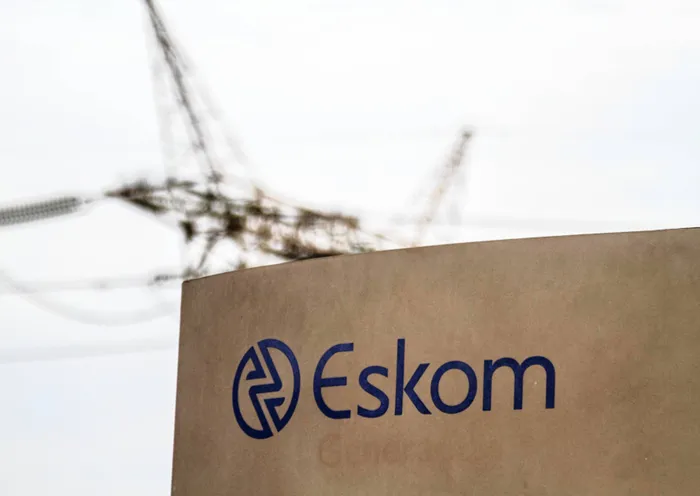
Eskom’s has taken the regulator, Nersa, to court over the issuance of trading licences to independent traders.
Image: File/Dean Hutton
This past week offered another clear example of the ongoing reluctance to cede control and allow the energy transition to unfold. It reinforced once again that the energy sector remains a source of political power and financial leverage.
The case concerns Eskom’s decision to take the regulator, Nersa, to court over the issuance of trading licences to independent traders. The South African Local Government Association (Salga) has joined Eskom’s position, expressing concern that the move, taken without a comprehensive regulatory framework and adequate public consultation, poses a serious threat to the financial sustainability, constitutional mandate, and operational integrity of municipal electricity distribution systems.
Salga argues that municipalities will be left with less revenue to cross-subsidise service delivery and will inherit a disproportionate share of defaulting customers. They also contend that, since municipalities are constitutionally empowered to distribute electricity within their jurisdictions, allowing traders to operate in the same areas without coordination infringes on that right.
Further, Salga claims that traders will be able to offer competitive tariffs without the same universal service obligations, creating an uneven playing field and distorting competition. Finally, they argue that municipal debt to Eskom, now exceeding R100 billion, should be addressed within any trading framework. These claims warrant closer scrutiny.
Municipalities are already losing revenue, but not because of the energy transition or the entry of independent traders and power producers. The problem lies elsewhere, in four key areas.
The first is the misappropriation of funds to pay politically connected service providers that often fail to deliver the services for which they are contracted. Payments are made, but the work is not completed. The second is a long-standing culture of non-payment, enabled by government at multiple levels. Weak enforcement has bred an expectation that electricity bills can go unpaid without consequence. In addition, theft of revenue by municipal employees through the illicit sale of prepaid tokens has become widespread, again with little accountability.
The third is inadequate maintenance of infrastructure, which results in significant technical losses. In Tshwane, for example, outages have increased sharply in the past year. At the same time, cuts to the electricity maintenance team’s overtime budget have lengthened turnaround times by three to four times, leaving large areas without power for extended periods. During these outages, municipalities lose revenue from paying customers who receive no service. The fourth is a lack of forward planning and initiative.
When load shedding peaked and households and businesses installed around 4 GW of rooftop solar and battery storage within two years, municipalities responded not by innovating but by becoming obstacles. Instead of developing alternative revenue streams, they focused on revenue erosion narratives.
Municipalities largely purchase power directly from Eskom, usually at tariffs aligned with Eskom’s MegaFlex time-of-use (TOU) structure. They then sell at TOU tariffs to industrial and retail customers but at a flat rate to residential customers. In winter, this leaves them buying from Eskom at peak rates and selling at lower rates, creating direct losses. If municipalities enabled rooftop solar owners to store energy and sell it back at prices below Eskom’s peak tariffs, they could generate surplus revenue. That this has not been pursued remains unexplained.
Municipalities often invoke their constitutional mandate, but they misinterpret it. Distribution of electricity is not synonymous with the sale of electricity. Municipalities could contract independent traders to manage sales, metering, invoicing, and revenue collection, while they focus on maintaining and expanding distribution infrastructure in line with their mandate. Independent traders, sourcing from independent producers, would be able to secure more competitive tariffs, reducing prices and stimulating demand. In return, traders would pay municipalities a “use-of-system” charge for access to their distribution networks. This would reduce both technical and nontechnical losses, grow overall sales, and increase municipal revenue, supporting the repayment of municipal debt to Eskom.
The Eskom chairman has now added his voice, stating that the transition is rushed and promoting chaotic change. Perhaps the chairman’s view reflects the same reluctance to cede control and allow the energy transition to proceed. At its core, this is about political power and financial leverage.

Thomas Garner holds a Mechanical Engineering degree from the University of Pretoria and an MBA from the University of Stellenbosch Business School.
Image: Supplied
Thomas Garner holds a Mechanical Engineering degree from the University of Pretoria and an MBA from theUniversity of Stellenbosch Business School. Thomas is self-employed focusing on energy, energy related criticalminerals, water and communities. He is a Fellow of the South African Academy of Engineering and aManagement Committee member of the South African Independent Power Producers Association.
*** The views expressed here do not necessarily represent those of Independent Media or IOL.
BUSINESS REPORT